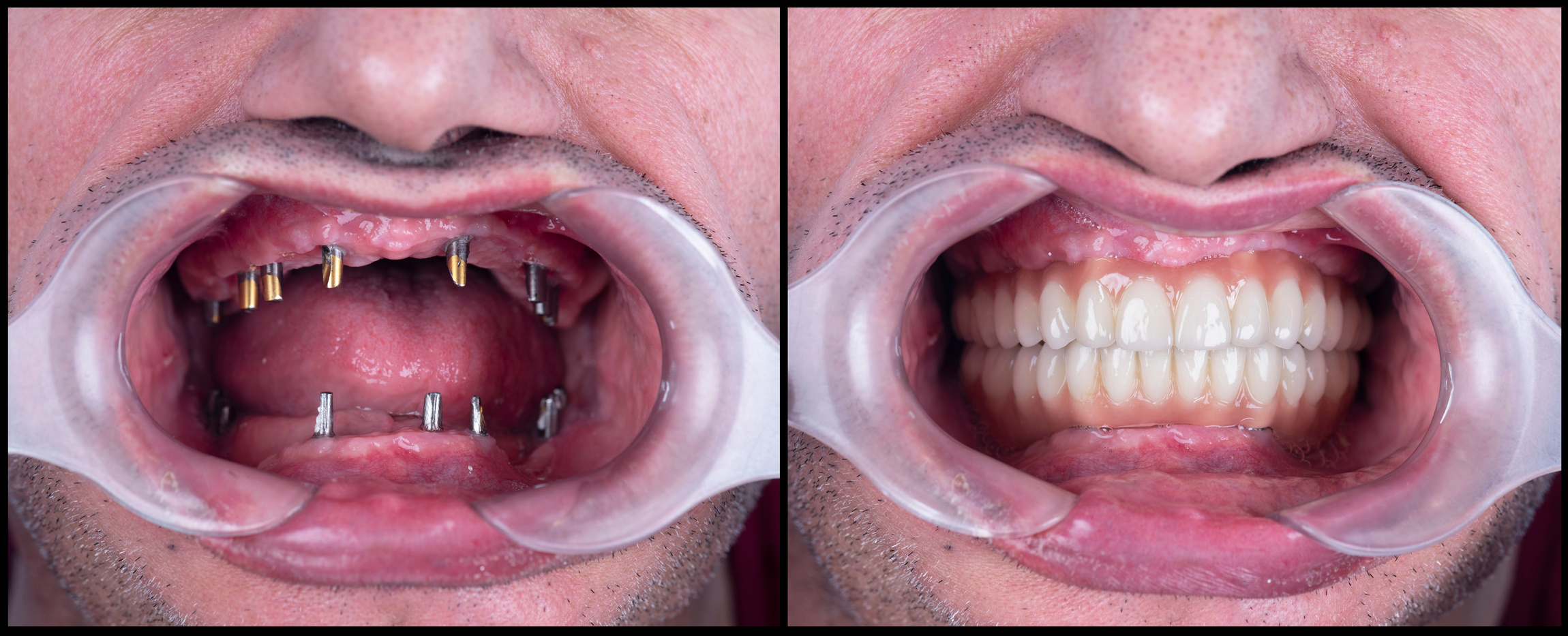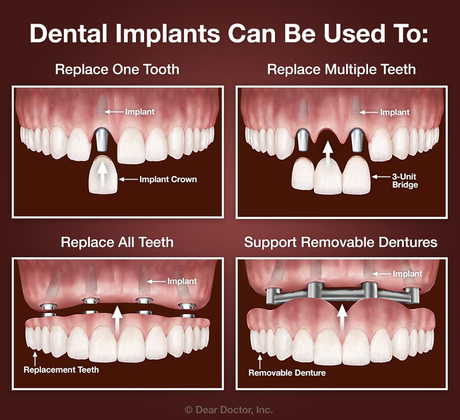Not known Details About Dental Sense
Not known Details About Dental Sense
Blog Article
3 Simple Techniques For Dental Sense
Table of ContentsNot known Details About Dental Sense Getting My Dental Sense To WorkThe Main Principles Of Dental Sense The Best Guide To Dental Sense
are medical devices surgically implanted into the jaw to bring back an individual's capacity to eat or their appearance. They give assistance for artificial (phony) teeth, such as crowns, bridges, or dentures. When a tooth is shed because of injury or disease, a person can experience problems such as rapid bone loss, defective speech, or modifications to chewing patterns that lead to discomfort.Oral implant systems contain a dental implant body and oral implant joint and might also include a joint fixation screw. Cosmetic dentistry services. The dental implant body is surgically put in the jawbone instead of the tooth's root. The dental implant abutment is typically attached to the dental implant body by the joint addiction screw and expands via periodontals right into the mouth to sustain the connected artificial teeth
(https://experiment.com/users/dentalsense1)Structure of The Oral Implant System choosing dental implants, speak to your oral supplier about the prospective benefits and risks, and whether you are a candidate for the treatment. Points to think about: Your general health is an important consider establishing whether you are an excellent prospect for oral implants, how much time it will certainly take to heal, and for how long the implant may remain in place.
Smoking cigarettes might influence the recovery process and decrease the long-term success of the implant. The healing procedure for the dental implant body might take a number of months or longer, throughout which time you typically have a momentary abutment instead of the tooth. the oral implant treatment: Very carefully adhere to the dental health directions offered to you by your oral company.
Dental Sense - Questions
Implant failing can lead to the requirement for one more surgical treatment to take care of or change the dental implant system. Brings back the capability to eat Recovers aesthetic appearance Aids maintain the jawbone from reducing because of bone loss Maintains the health of the surrounding bone and periodontals Helps maintain adjacent (nearby) teeth secure Improves quality of life Damage to surrounding natural teeth during implant positioning Injury to the surrounding tissues throughout surgical treatment, such as sinus perforation Injury during surgical treatment (for instance, fracture of surrounding jawbone) Inadequate feature, such as feeling like the teeth do not bite together generally An experience that the tooth hangs or turning in position arising from an abutment screw loosening Implant body failure (looseness of the implant body) as a result of systemic infection, which may be more probable in clients with uncontrolled diabetes mellitus as a result of local infection in bone and gum tissues sustaining the implant body as a result of delayed recovery, which might be more probable in individuals that smoke Difficulty cleaning up the gums around the dental implant, leading to bad oral hygiene Without treatment periodontal illness Post-surgical numbness due to nerve impingement or damage Always alert health and wellness care providers and imaging technicians that you have oral implants prior to any type of magnetic resonance imaging (MRI) or x-ray treatments.
FDA is not familiar with any type of damaging events reported for MRI or x-ray treatments with dental implants. Oral implants systems are generally made of materials that comply with international agreement standards of the International Company for Standardization (ISO) or ASTM International. These criteria have information of what makes a secure product.

An oral implant is a structure that changes a missing tooth. With screw-like devices, the cosmetic surgeon inserts a dental implant into the jawbone, and it acts as a support for a fabricated tooth, called a crown.
4 Easy Facts About Dental Sense Shown
Some people are not eligible for dental implant surgical procedure. It is for oral cosmetic surgeons to operate individuals with: acute illnessuncontrollable metabolic diseasebone or soft tissue illness or infectionIf these concerns are solved, an individual can have the surgery. In, oral specialists abstain from running on people with: If individuals with any of the above undertake dental implant surgery, there is a greater threat of the dental implant stopping working.

Dental implant surgery is a tailored process. It's not the very same for everyone. However the adhering to offers a basic introduction of what you can anticipate your dentist, oral doctor, periodontist or prosthodontist to do: Put the implant surgically. Offer you time to recover. Attach the post and final crown, bridge or denture.
Next, your surgeon will carefully put the oral implant right into your jaw. If your implant is near the front of your mouth, your dental professional will certainly make a momentary tooth for you to wear until you recover.
Dental Sense Fundamentals Explained
During the recovery stage, your jawbone must fuse to the oral implant. This process can take anywhere from three to 9 months.
As soon as your dental implant heals, your dental professional can affix the joint (small port article) and your final reconstruction (crown, bridge or denture). This typically takes about one hour to finish and might call for a 2nd minor surgical treatment. You shouldn't really feel any type of pain throughout your dental implant procedure since your service provider will use medicine to numb your periodontals.
Report this page